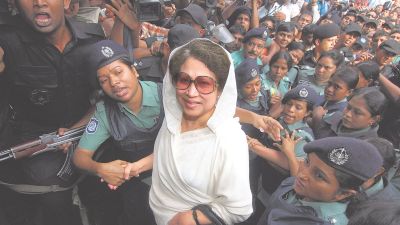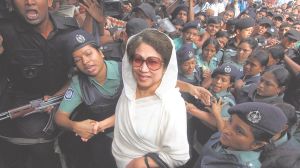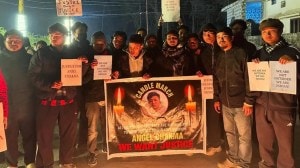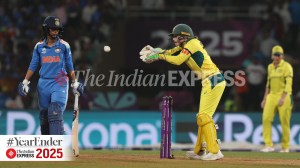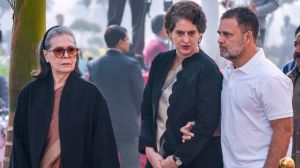Verse Sassy
A steaming cup of coffee, a crisp winter evening and a slim volume of T S Eliot8217;s caustic rambling for some.

Poets, in our part of the world, are treading terrains new to their art, and turning more heads than usual
A steaming cup of coffee, a crisp winter evening and a slim volume of T S Eliot8217;s caustic rambling for some. A damp corner of the bed, a mellow bedside lamp and nights aglow with Kamala Das8217;s angst for a few more. Poetry, its radicalism and romance had been the monopoly of not a sizeable number of people. However, with each passing day, poets like several other creative heads in the country, have been trying to let go of elitism. They are probably not out to give pulp fiction a run for its money, but are sure wanting to turn more heads than they usually do. And across the country, experiments with the form and its representation, are breaking myths and drawing more people into the fold of verses.
A case in point being Devashish Makhija. His debut book Occupying Silence explores a composite of poetry and images, he calls 8216;graphic verse8217;. Sample this: 8216;She had finally allowed me to kiss her. 8216;Anywhere,8217; she had said, 8216;but not on my lips8217;. We had stood awkwardly at the 9th floor window and I touched her like a gawkish schoolboy. I left to get her some water.8217; Makhija8217;s idiom, flippant and intriguing, not only reaches out to more people than convoluted and saccharine rhetoric could have, the accompanying images see to it that his work cuts across groups of people with varying interests. 8220;When poetry is presented in a manner that doesn8217;t absurdly presuppose intellectual inclinations, it is accepted by several people with a lot of warmth,8221; says Sanoli, of city-based recitation band Mahul, which has been trying to revive poetry among all and sundry for some time now. From icons like Sukumar Ray to contemporaries like Srijato, Mahul works on poets across generations apart from writing their own stuff.
8220;I had been writing poetry and had an interest in typography for a long time now. And I decided to bring the two together,8221; says Makhija, an assistant director based in Mumbai. No wonder filmmaker Aparna Sen describes his works as 8216;brave and fresh8217;.
Thirty-one-year old Ahmedabad-based Nikhil Parekh doesn8217;t actually speak Makhija8217;s language. 8216;The impoverished eyes irrefutably splashed it, when joyously splashed with unfathomable cisterns of overwhelmingly poignant empathy8217;, writes Parekh in his book Love versus Terrorism that he wrote in the aftermath of the Mumbai carnage. Understandably, subtlety is not his way and opulent rhetoric replicates thoughts and musings on topics and events relevant in this day. But the internet has acted as a boon for this poet, helping him reach out to several people who probably don8217;t enjoy the nuances of subtle, deep rhetoric. 8220;My websites, blogs, forums, etc combined together get over 7 to 10 thousand viewers to my poetry, poetry books daily,8221; says Parekh. That is how he got noticed by the US-based Charles Klusener, of flashpoetry.net, who added music and visuals to his work in an attempt to make his poems more engaging.
8220;The technology to combine poems, imagery and music on a home desktop and immediately upload them to the internet for all the world to see like my website at flashpoetry.net has never before been available to an amateur,8221; says Klusener. And Parekh definitely thinks that the innovation helps his creations reach people 8216;more effectively8217;. 8220;With the advent of web sites like Myspace, Youtube and Facebook, it is my belief that the future of new poetry creations will be in movie files like I make,8221; adds Klusener.
Sovan Sundar Basu, who created Brishti, arguably the first recitation band in this part of India, says, 8220;Most of our members are not flawless singers. What is important, is to get the audience to connect with the poem. Music breaks the ice, that a sober formal recitation would create,8221; says Basu. He formed Brishti following the footsteps of British poetry performer Benjamin Zephaniah who performed music to engaging music.
To rewrite a clicheacute;, therefore, if Indian contemporary poets keep racking their brains, there would a poem for every heart8230;
- 01
- 02
- 03
- 04
- 05


